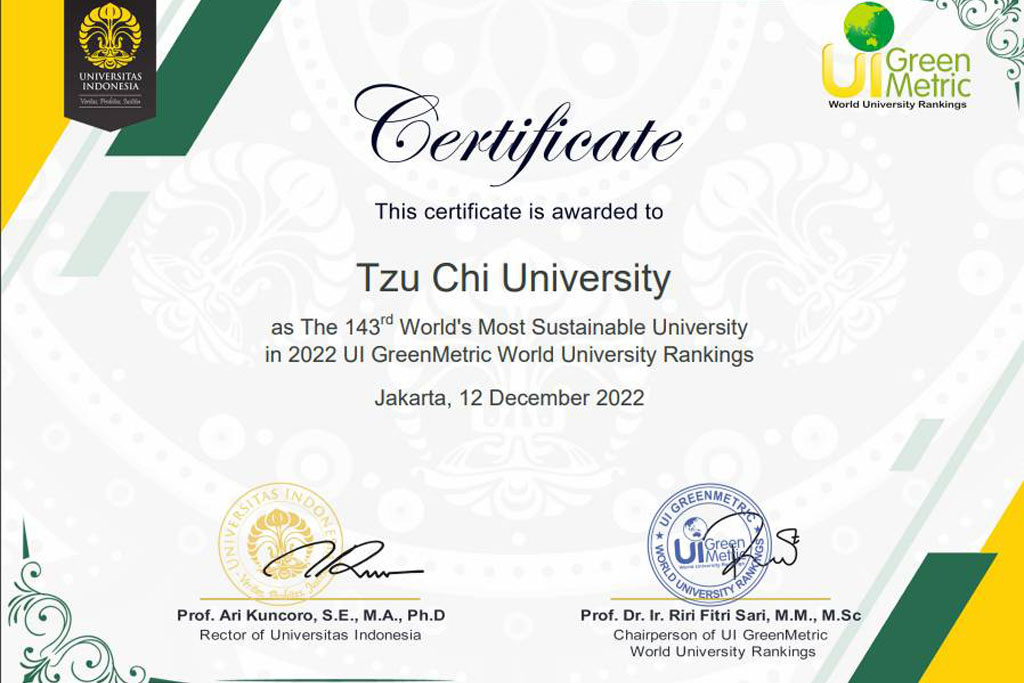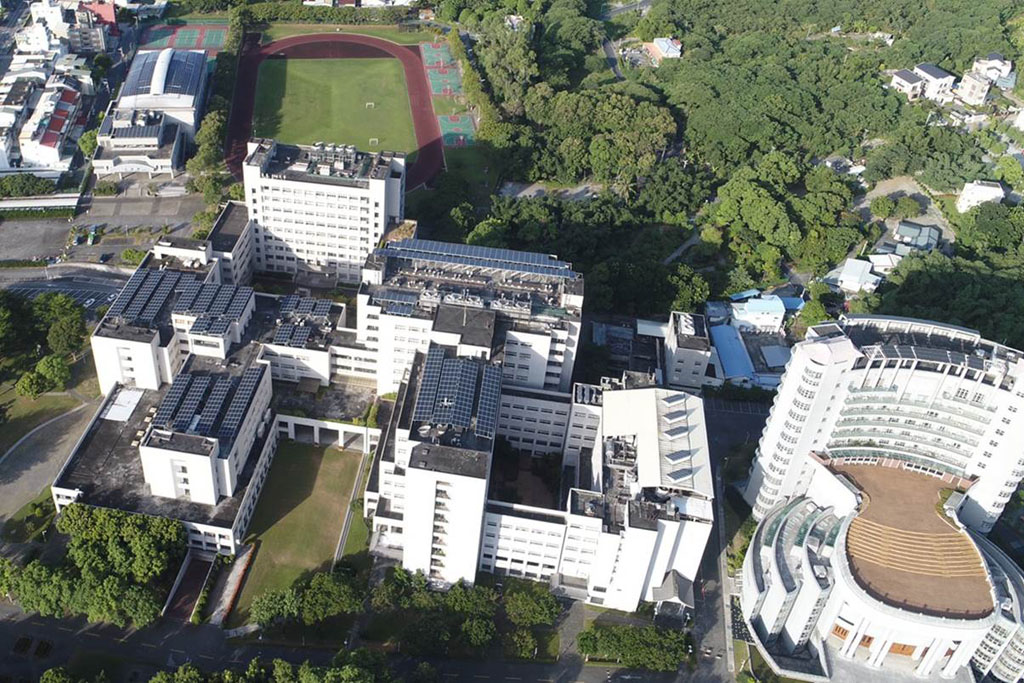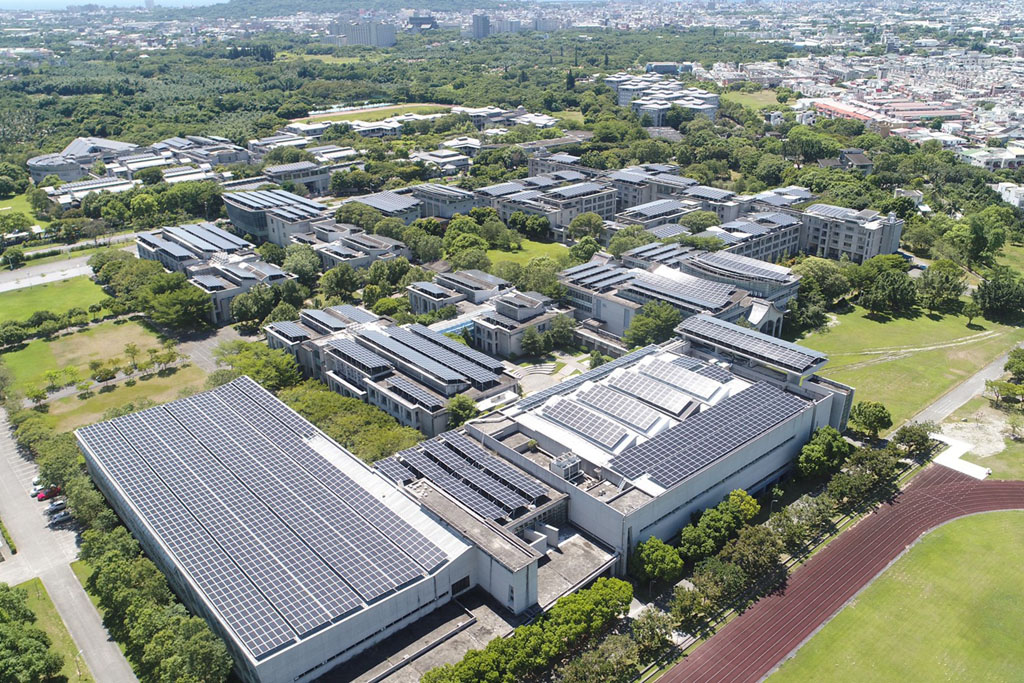Tzu Chi University Ranks 143rd in The UI Green Metric World University Rankings
The UI Green Metric World University Rankings is an initiative of Universitas Indonesia, launched in 2010. In 2022, 1,050 universities worldwide participated; compared with 2021, participants were 94 more. Thirty universities in Taiwan took part.
Tzu Chi University has participated in these rankings since 2017 and was ranked 200th worldwide that year. In 2022, the University was in 143rd place, up from 157th in 2021; the University was 13th in Taiwan, up from 14th in 2021. The University’s 2022 score increased by 340, reflecting the its continuous efforts to promote environmental sustainability over the years.
Overall, the University performed best in campus infrastructure, ranking 47th in the world and 5th in Taiwan, followed by waste management, 115th in the world, and 9th in Taiwan. Since its inception in 1994, the University has committed to constructing green buildings and carrying out environmental protection measures. Green areas and permeable pavements have accounted for more than 80% of its campuses.
In response to environmental changes and school developmental needs, the University has invested in pollution prevention facilities, energy conservation systems, and other equipment to ensure campus safety, enhance sanitation management, and augment barrier-free campuses. To advocate sustainable consumption, the University offers vegetarian food daily to faculty members, staff, and students, disallows disposable tableware at every meeting or activity, and asks University members to bring their own tableware. Moreover, its on-campus restaurants have obtained the green restaurant certification. To reduce wastes, faculty members, staff, and students have worked on waste reduction and recycling. As a result, the current waste recycling rate has reached nearly 60%.
In 2022, the University made the most progress in reducing the impact of energy and climate change. In terms of hardware, the University has continued to invest in intelligent power-saving systems since 2013. Based on the premise that as long as users do not feel uncomfortable and instructors can carry out their teaching comfortably, the system will stop supplying air-conditioning to reduce the peak load, decrease electricity consumption, save energy, and reduce carbon emissions.
The University’s actions in mitigating climate change include the following:
- Setting up consumer cooperatives on campus.
- Supporting local small farmers.
- Holding farmers’ markets.
- Supporting friendly agriculture.
- Enriching the ability of soil to adapt to climate change.
The University’s Center for Social Responsibility assists Jia-Ming Tribal residents in planting birds-nest ferns, to promote an economy that coexists with the natural environment and ensures that plants play their roles in regulating the climate. In addition, to increase rainwater storage and infiltration, reduce surface runoff, and mitigate disasters caused by extreme weather, the University applies LID (Low Impact Development) design to build its facilities. The University built flood detention ponds, interlocking bricks, seepage ditches, and a roof rainwater harvest system by applying LID.
Due to their inadequate capacity, the older solar power generation facilities, which are ten years old, have declined in power generation yearly. The University follows the government’s renewable energy development policy and invites manufacturers to install solar photovoltaics on its rooftops. Currently, the installed capacity of the two campuses is 3686.81KWp, and the annual power generation is about 3.5 million kWh, about 20% of the University’s electricity consumption. The University will enhance its capability to provide renewable energy, contribute to Taiwan’s energy transformation, and move toward the goal of zero carbon emissions.
In recent years, university rankings no longer focus on teaching and research, but have gradually transformed to comprehensively evaluating a university’s fulfillment of its social responsibility. The University takes a step-by-step approach, strives to save energy and reduce carbon emissions, and builds a safe, environmentally friendly environment. To achieve these goals, the University works with community residents, collaborates with various institutions in Taiwan and overseas, and promotes cooperative economics. The University has set sustainable development as its core. Through these endeavors, it wishes that people may purify their hearts, society will become harmonious, and the world will become free of disasters.
In the 2022 Times Higher Education University Impact Rankings, Tzu Chi University ranked 12th worldwide in SDG 3: Good health and well-being. It won the “Taiwan Corporate Sustainability Award” and “Model University Award for Sustainable Development” in 2022. In addition, it has performed well every year in the “School with Characteristic Life Education,” “School with Characteristic Education,” and “School with Excellent Anti-drug Performance” and has been repeatedly recognized by all walks of life.
Tzu Chi University will move toward a brighter future. It looks forward to offering more inspirational courses, enhancing the awareness and recognition of faculty members, staff, and students in sustainable development, and encouraging community residents and other primary, junior high school, and senior high school students to work together for sustainable development.




